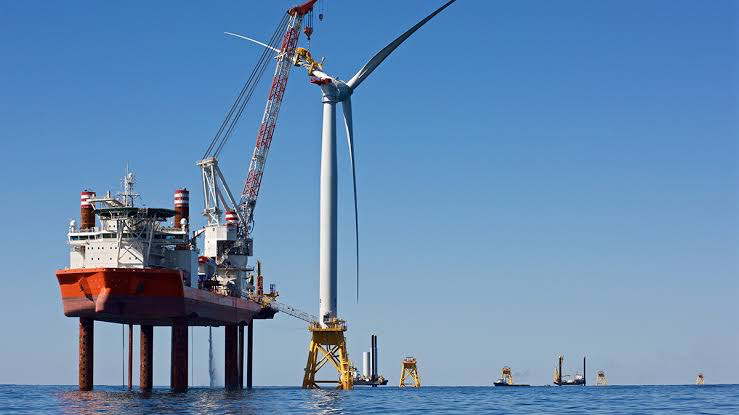KEY POINTS
- Europe struggles to meet its offshore wind targets amid rising costs and regulatory delays.
- Vestas CEO warns that Europe risks falling behind as turbines are sent to other regions.
- Industry leaders recommend streamlining permits and improving auction designs to achieve renewable energy goals.
Industry leaders and legislators say that inefficient policies, slow permission processing, and growing costs are making it difficult for Europe to reach its ambitious offshore wind generation ambitions.
Concern over the region’s capacity to meet its renewable energy targets for 2030 and 2050 is increasing as discussions go on.
Offshore wind targets falling behind
North Sea officials reaffirmed their commitment to making the region a significant hub for green energy during a summit in Odense, Denmark.
The countries had pledged to build 120 gigawatts (GW) of offshore wind power by 2030 and 300 GW by 2050.
However, with only 35 GW of offshore wind capacity installed to far, industry analysts have noted that Europe is now having difficulty meeting its 2030 target.
EU Energy Commissioner Kadri Simson acknowledged the difficulties and said Europe is still trying to catch up.
Despite tremendous technological progress over the last 20 years, offshore wind power is currently having trouble getting funding for new projects because of declining profit margins.
Rising costs and regulatory hurdles
Both turbine makers and project developers have faced challenges due to the high expense of constructing wind farms at sea. Long permission processing periods and poor auction designs are dragging down development, according to Henrik Andersen, CEO of Vestas, the biggest wind turbine producer in the world.
According to Reuters, Andersen noted that turbines made in Denmark are being exported to regions with more demand, such as Japan and Taiwan, while Europe struggles.
There are worries that Europe would lag behind other regions in the worldwide competition for offshore wind power development as a result of the delays and legislative barriers.
The region runs the risk of falling short of its renewable energy goals unless there are major changes made to financing and policy.
Recommendations for improvement
In order to overcome the obstacles, government representatives and business executives have made suggestions to the newly appointed European Commission, asking legislators to enhance auction mechanisms, expedite licensing procedures, and boost funding for offshore wind projects.
Achieving carbon neutrality and increasing the area’s offshore wind capacity are thought to depend on these actions.
The European Union’s initiatives to improve energy security and lessen dependency on fossil fuels heavily depend on the offshore wind industry in Europe.
The EU’s ability to reach offshore wind ambitions will be crucial to maintaining its position as a leader in renewable energy as the globe searches for cleaner energy options.



